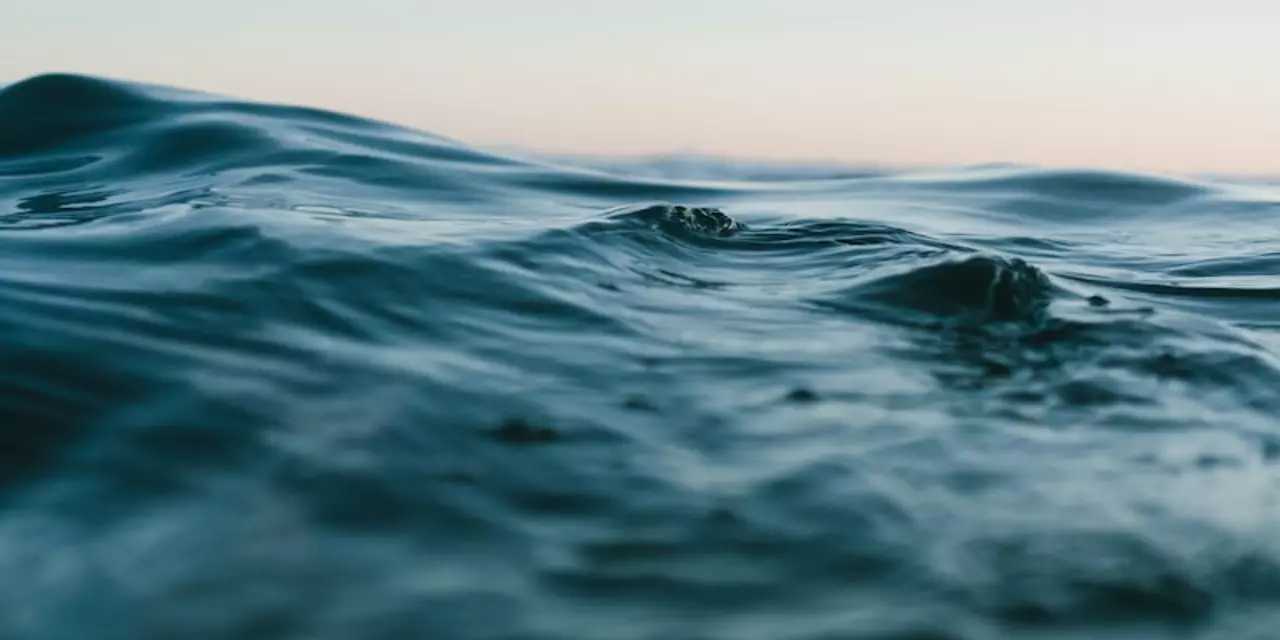Investigating Delhi's Tap Water Crisis: Uncovering the Causes of Poor Quality Water
Delhi is home to over 20 million people and is one of the largest cities in India. Unfortunately, the city is facing a tap water crisis. The tap water is often unsafe to drink and even showering in it can be hazardous to health.To understand the root causes of the poor quality water, we must first look at the infrastructure of Delhi's water supply. Delhi's water is supplied from a number of sources, including the Yamuna River, groundwater and the Upper Ganga Canal. However, the majority of the city's water comes from the Yamuna River, which is highly polluted due to untreated industrial and domestic waste being dumped into it. This water is then transported to Delhi through a network of pipes, where it is treated at several water treatment plants.
Unfortunately, the water treatment plants in Delhi are outdated and inefficient. They are unable to adequately remove the pollutants from the water, leading to high levels of contamination in the water supply. Furthermore, the pipes that transport the water are often old and corroded, leading to further contamination of the water.
The lack of proper sanitation and hygiene in Delhi is also a major factor in the poor quality of water. Many people do not have access to proper toilets and bathing facilities, leading to the contamination of water sources with human waste. This is further exacerbated by the fact that many people living in Delhi do not have access to clean drinking water, and are forced to use contaminated water for drinking, cooking and cleaning.
In addition to the infrastructure and sanitation issues, Delhi's water is also subject to various environmental factors. The city often experiences water scarcity due to the erratic monsoon rains, as well as the changing climate. This leads to a shortage of water, which means that the existing water supply must be used more sparingly and is more likely to become contaminated.
The water crisis in Delhi is a complex problem that requires a multi-pronged approach. This includes the implementation of better water treatment processes, better sanitation and hygiene practices, and improved access to clean drinking water. The government must act quickly to address the issue, and ensure that all citizens have access to safe and clean drinking water.
Delving into Delhi's Tap Water Problem: Examining the Reasons for Contaminated Water
Water is essential for life and unfortunately, the quality of tap water in Delhi has been a source of concern for many of its citizens. In recent years, the quality of Delhi’s tap water has been put in the spotlight due to reports of rising levels of pollutants and contaminants in the water. This has left many citizens questioning the reasons behind the poor quality of the water they are getting from their taps.Delhi’s tap water is sourced from the Yamuna river and also from groundwater sources, such as wells and boreholes. However, the Yamuna river is a major source of water pollution and is contaminated with a range of pollutants, including heavy metals, industrial effluents, sewage, and agricultural runoff. This has led to the water becoming contaminated and unfit for human consumption.
The issue of pollution is further compounded by the fact that Delhi has an aging and inadequate water infrastructure. Poorly maintained pipes, leakage, and seepage from sewers all contribute to the contamination of the water. This means that the water we get from our taps is not only contaminated by pollutants from the river but also from the infrastructure itself.
Another issue facing Delhi is the lack of access to clean and safe drinking water. In recent years, the city has seen a rapid increase in population and as a result, water demand has also increased. This has put a strain on Delhi’s water infrastructure and has led to shortages and rationing of water, meaning many people are not able to access the water they need.
The situation in Delhi is a worrying one and it is clear that something needs to be done to improve the quality of the tap water. The government needs to invest in cleaning up the Yamuna river and in improving the water infrastructure in order to ensure that the people of Delhi can access clean and safe drinking water. In the meantime, people should take precautions and consider using bottled water or installing a water filter to ensure they are getting safe and clean water.
Examining the Causes of Poor Water Quality in Delhi: Investigating the Source of the Problem
Delhi, India’s capital city, is known for its high levels of air pollution and traffic congestion, but what many people may not be aware of is its poor water quality. In fact, the quality of Delhi’s tap water has been a major concern for many years now.There are several potential causes of poor water quality in Delhi, some of which are more widely known than others. One of the main causes is the presence of high levels of pollutants in the Yamuna River, which is the primary source of drinking water for Delhi. The Yamuna River is highly polluted due to industrial waste, sewage, and agricultural runoff. As a result, when the water is processed and treated for drinking, it still contains a high amount of contaminants, which then end up in Delhi’s tap water.
Another factor that contributes to the poor water quality in Delhi is the age and condition of the city’s water distribution system. Many pipes that transport water to Delhi are old and corroded, and this can lead to the contamination of water with rust, lead, and other hazardous materials. Additionally, the water is often exposed to contamination sources due to leaks in the pipes.
Finally, the lack of proper water treatment and filtration plants in the city is also a major contributor to Delhi’s poor water quality. Many of the existing filtration plants are outdated and do not meet the necessary standards for providing safe drinking water.
It is clear that there are multiple factors contributing to the poor quality of tap water in Delhi. In order to address this issue, it is important that the government and other stakeholders take action to improve the water quality in the city. This can include introducing better water treatment and filtration processes, as well as ensuring that the existing infrastructure is maintained and upgraded. Taking these steps will help to ensure that Delhi’s tap water is safe for consumption.
What is Behind Delhi's Tap Water Issues? Exploring the Reasons for Poor Quality Water
Delhi, India's capital, is facing an ongoing water crisis. Every day, millions of people rely on the city’s tap water for their daily needs, yet the water quality is often poor and unsafe. In recent years, the water crisis has become more severe, and many people have been asking: what is behind Delhi’s tap water issues?The truth is, there are multiple factors that contribute to Delhi’s poor water quality. The most significant of these is pollution. Delhi’s water is contaminated by a variety of pollutants, including industrial waste, sewage and agricultural runoff. This pollution has caused high levels of lead, chromium and other heavy metals to accumulate in the water, making it unsafe for drinking and other uses.
Another reason for Delhi’s water woes is a lack of proper infrastructure. The city’s water supply system is outdated and inadequate, leading to significant water losses. Additionally, the city’s growing population has put a strain on the existing system, resulting in a decrease in the water pressure in some areas.
Finally, the water crisis in Delhi is exacerbated by poor water treatment and management. The city’s water treatment plants are outdated and inefficient, leading to a high level of untreated waste entering the water supply. This untreated waste contains harmful bacteria, viruses, and other contaminants, making the water unsafe.
These are just some of the reasons behind Delhi’s tap water issues. It is clear that the water crisis in Delhi is a complex problem with many contributing factors. To solve it, the city must invest in infrastructure upgrades, improved water treatment and better water management practices. Only then will Delhi’s citizens be able to enjoy clean, safe drinking water.
Understanding Delhi's Tap Water Quality: Investigating the Causes of Contaminated Water
Delhi, India's capital city, is home to over 20 million people. Unfortunately, the city's tap water is of poor quality, with contaminants that can cause significant health problems. In this article, we will investigate the reasons for the poor quality of Delhi's tap water.The first cause of Delhi's poor tap water quality is the high levels of pollution in the Yamuna River, which supplies the city's water supply. The river has been polluted for decades due to industrial wastewater, sewage, and garbage. In addition, agricultural runoff has also contributed to the river's contamination. As a result, the water is contaminated with heavy metals and other pollutants that can be harmful to human health.
The second cause of Delhi's poor tap water quality is the lack of proper filtration and treatment. The city's water supply is not properly filtered and treated, leading to the presence of pollutants such as lead, mercury, arsenic, and other hazardous substances. In addition, the water supply is often not chlorinated, which can lead to the growth of bacteria and other microorganisms in the water.
The third cause of Delhi's poor tap water quality is the high levels of contamination from industrial and agricultural sources. Factories, power plants, and other industrial sites in and around the city release pollutants into the air, water, and soil. These pollutants can then find their way into the city's water supply, leading to contamination. Similarly, agricultural runoff from nearby farms can also contribute to the contamination of the city's water.
Finally, the fourth cause of Delhi's poor tap water quality is the lack of proper infrastructure. The city's water supply is often not maintained correctly, leading to the presence of contaminants and other pollutants in the water. In addition, the city's pipes and other water distribution systems are often old and in need of repair. This can lead to contamination and poor water quality.
In conclusion, Delhi's tap water is of poor quality due to the high levels of pollution in the Yamuna River, lack of proper filtration and treatment, contamination from industrial and agricultural sources, and lack of proper infrastructure. In order to improve the city's water quality, it is important to address these issues and ensure that the city's water supply is properly filtered and treated.





